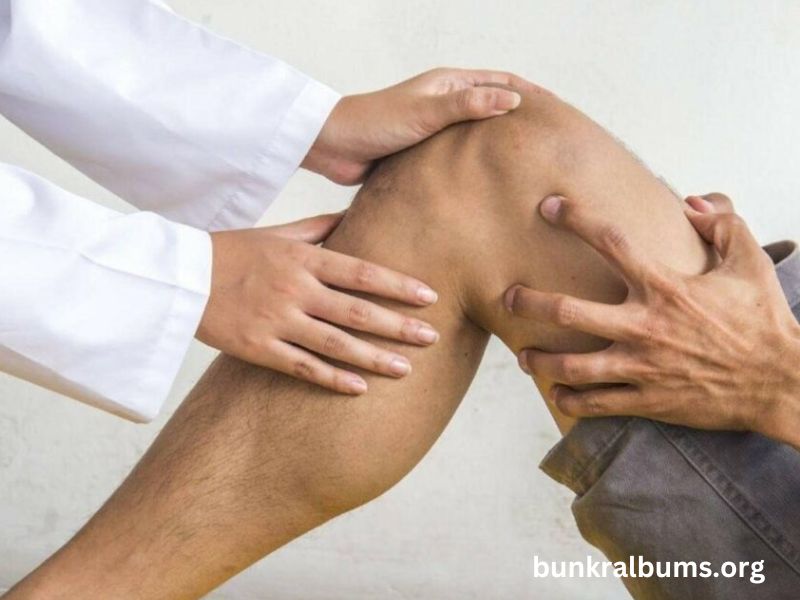Knee replacement surgery, also known as knee arthroplasty, is a significant medical procedure that offers patients relief from chronic pain and improved mobility. However, the recovery process is just as important as the surgery itself. Many patients unknowingly make mistakes after their knee replacement, which can slow down recovery, cause complications, or even lead to more surgeries. In this article, we’ll explore the top 5 mistakes after knee replacement surgery and how to avoid them for a smoother, faster recovery.
Ignoring Physical Therapy and Exercise
One of the biggest mistakes patients make after knee replacement surgery is neglecting physical therapy and prescribed exercises. These exercises are crucial for rebuilding strength, flexibility, and range of motion in your new knee. Many patients mistakenly believe that because the surgery is over, they no longer need to put in the effort. However, skipping physical therapy can result in stiffness, limited mobility, and a longer recovery time.
Why Physical Therapy Matters:
- Physical therapy helps to restore mobility and prevent scar tissue from forming around the joint.
- It strengthens the muscles surrounding the knee, providing better support and reducing the risk of future injuries.
- Therapy aids in reducing pain and inflammation, helping patients regain their daily activities faster.
Tip for Success: Follow your physical therapist’s plan closely, even when the exercises feel challenging or painful. It’s essential to stay consistent, as gradual improvements will become evident with time. The goal is to regain the full range of motion and strength.
Doing Too Much, Too Soon
While it’s essential to stay active after knee replacement surgery, overdoing it too soon can be detrimental. Many patients, eager to return to their normal routines, push themselves too hard and risk damaging their new knee joint. Activities like running, lifting heavy objects, or participating in high-impact sports should be avoided until your doctor gives the green light.
Consequences of Overexertion:
- Excessive physical activity can lead to increased swelling and pain.
- Overloading the knee joint can cause mechanical complications or loosen the implant, leading to revision surgery.
- High-impact activities can put unnecessary stress on the knee, which can prolong the healing process.
Tip for Success: Take your time with recovery. Gradually increase activity levels according to your surgeon’s and physical therapist’s recommendations. It’s better to progress slowly and steadily rather than risk setbacks by overexerting yourself.
3. Not Managing Pain Properly
Pain management is a crucial aspect of recovering from knee replacement surgery. Many patients either avoid taking pain medications or rely on them too heavily. Both approaches can cause problems in the recovery process. Under-managing pain can lead to discomfort, decreased mobility, and lack of sleep, which can delay healing. On the other hand, over-relying on painkillers, especially opioids, can lead to dependency and other health risks.
Balancing Pain Management:
- Take pain medications as prescribed by your doctor, but avoid overuse.
- Use alternative pain management techniques such as ice packs, elevation, and rest.
- Discuss non-opioid pain management options with your healthcare provider to reduce reliance on strong medications.
Tip for Success: Focus on a balanced approach to pain management. Stay in communication with your healthcare team to ensure that your pain is under control without overmedicating. Proper pain management will allow you to perform physical therapy and daily tasks with less discomfort.
Neglecting Diet and Hydration
After knee replacement surgery, patients often underestimate the importance of a healthy diet and proper hydration in the recovery process. A balanced diet provides the essential nutrients needed for tissue repair and immune function, while hydration helps with circulation and reducing swelling. Many patients fail to prioritize nutrition and water intake, which can slow healing and increase the risk of complications such as infections.
The Importance of Nutrition and Hydration:
- Protein helps rebuild muscle tissue and repair the surgical site.
- Vitamins and minerals, especially vitamin C and zinc, play a key role in wound healing.
- Hydration aids in reducing inflammation and supports the body’s natural recovery processes.
Tip for Success: Focus on a diet rich in lean proteins, fruits, vegetables, and whole grains. Stay well-hydrated by drinking plenty of water throughout the day. Avoid excessive caffeine and alcohol, as they can dehydrate your body and interfere with healing.
5. Skipping Follow-Up Appointments
After undergoing knee replacement surgery, it’s essential to attend all scheduled follow-up appointments with your surgeon. These appointments allow your doctor to monitor your progress, identify any complications early, and adjust your recovery plan if needed. Unfortunately, some patients skip these appointments once they start feeling better, assuming they no longer need medical supervision.
Why Follow-Up Care is Important:
- Your surgeon can detect signs of infection, implant problems, or improper healing before they become serious.
- Adjustments to your medication, physical therapy, or lifestyle recommendations can be made to optimize recovery.
- Follow-up X-rays and assessments ensure that the knee implant is functioning properly.
Tip for Success: Prioritize attending all follow-up appointments, even if you feel like your recovery is going smoothly. Your healthcare team can provide valuable insights and support to help you achieve the best outcome.
Conclusion
Knee replacement surgery is a life-changing procedure that offers relief from chronic pain and improves mobility. However, the success of your surgery depends heavily on how well you manage your recovery. By avoiding these top 5 mistakes—skipping physical therapy, overexerting yourself, mismanaging pain, neglecting your diet, and missing follow-up appointments—you can ensure a smoother and faster recovery process.
For anyone recovering from knee replacement surgery, it’s important to follow your surgeon’s guidelines, stay patient with your progress, and make informed choices throughout the healing journey. Doing so will help you achieve long-term success with your new knee and return to your active lifestyle without unnecessary complications.







